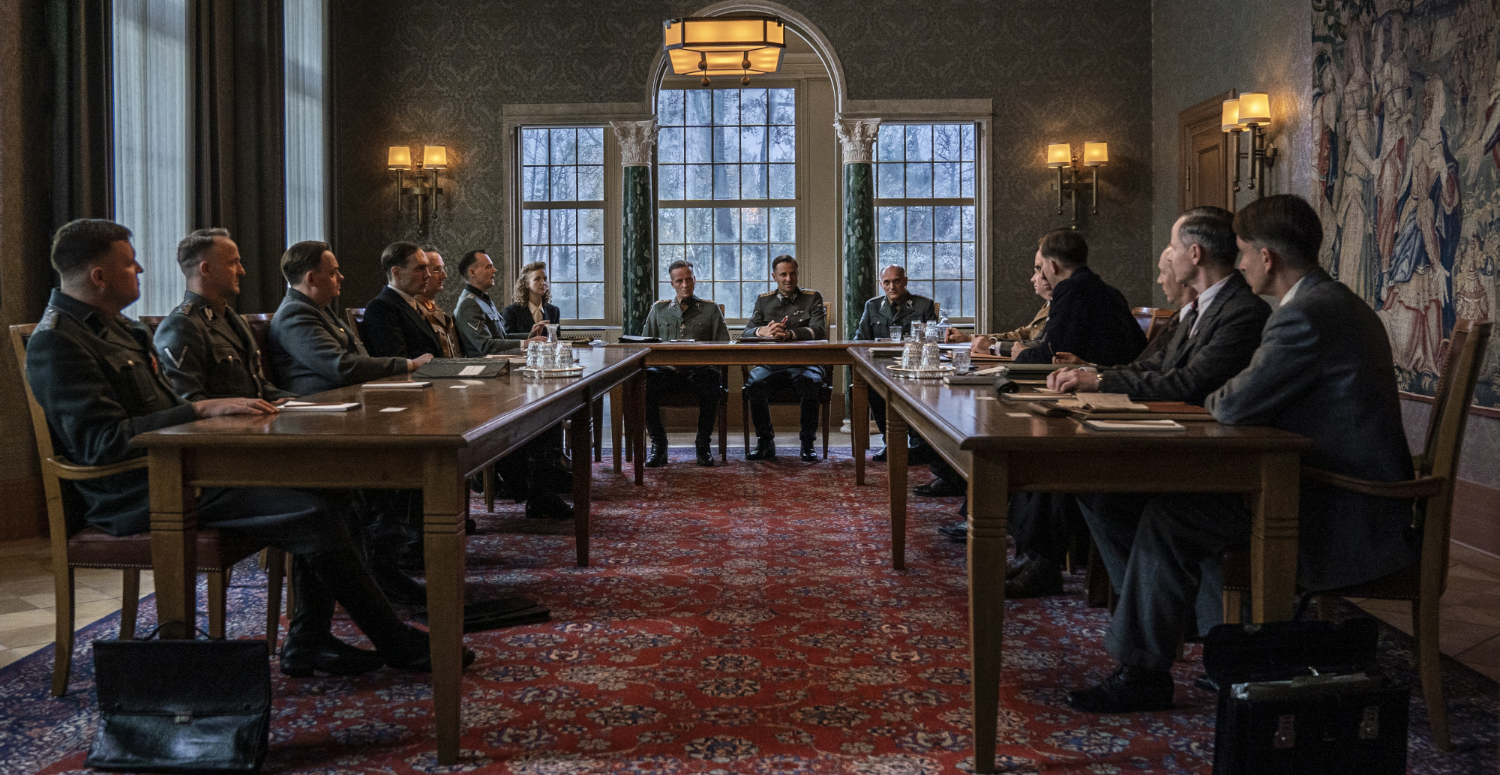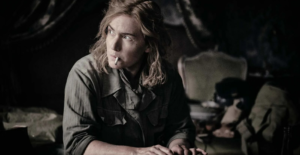La Conférence
Die Wannseekonferenz
(The Conference)
Best TV Movie – Romy
Best Actor – Romy
Best Writing Fiction – Romy
2022/2023

FR EN
Au matin du 20 janvier 1942, une quinzaine de représentants du IIIe Reich, entre officiers de la Waffen SS et fonctionnaires du parti nazi, se retrouve dans une villa cossue au bord du lac de Wannsee. Ils y ont été conviés par Reinhard Heydrich, alors Vice-Gouverneur et directeur de la sûreté du Reich, pour débattre deux heures durant et se mettre d’accord avant midi sur la solution finale à la question juive !
Téléfilm diffusé sur la ZDF à l’occasion du 80e anniversaire de la tristement célèbre conférence de Wannsee puis ensuite distribué en salles à l’international et sorti la semaine dernière en France, « La Conférence » est une glaçante reconstitution d’une effrayante page de l’Histoire. Sans aucune image d’archive, le film de Matti Geschonneck mise tout sur la puissance des mots et la froideur de sa mise en scène.
Si elle a parfois été critiquée, sa mise en scène reflète in fine admirablement bien son sujet avec une lumière d’hiver éclairant ce huis-clos filmé dans un style minimaliste, sans musique – aucune – et sans éclat dont on ressort oppressé comme il se doit dans un fort décalage entre le calme des lieux et l’horreur des conséquences. La caméra s’enferme alors pendant plus d’une heure entre quatre murs avec un large casting dont le débat détaille l’efficacité administrative et dénie toute forme d’humanité. La force de la mise en scène réside ainsi dans sa gestion du tempo, sa structure des débats et sa caractérisation des personnages illustrant la « Banalité du mal » telle que la décrivait Hannah Arendt au procès d’un Adolf Eichmann responsable de la logistique d’une telle opération devant impliquer à terme 11 millions de Juifs.
Ce n’est pas un film facile – où l’on risque d’ailleurs de s’endormir à la lecture constante des dialogues allemands –, mais c’est une œuvre à la fois âpre et terrifiante. Elle joue sur nos attentes, à savoir la compréhension de l’incompréhensible et la description de l’horreur que furent les chambres à gaz, le Zyklon B et les bûchers. Alors que l’acte lui-même pose finalement moins question dans ce débat que le processus qui l’entoure et les jeux de pouvoir et concurrences entre services qu’il engendre. Ce sont ces discussions pratiques d’agenda qui rendent un mal totalement “banal” encore plus subtil sur la fin.
Un excellent film, une vraie leçon d’Histoire …
Raphaël Sallenave
On the morning of January 20, 1942, fifteen representatives of the Third Reich, including Waffen SS officers and Nazi party officials, met in a fancy villa on the shore of Lake Wannsee. They had been invited by Reinhard Heydrich, then Vice-Governor and Director of Reich Security, to debate for two hours and agree before noon on the final solution to the Jewish question!
Broadcast on ZDF for the 80th anniversary of the infamous Wannsee conference, then distributed in theaters internationally and released last week in France, “The Conference” is a chilling reconstruction of a frightening chapter in history. With no archival footage, Matti Geschonneck’s movie relies on the power of words and the coldness of its staging.
If it has at times been criticized, his direction ultimately reflects admirably well the subject matter, with a winter light enlightening this closed-door setting filmed in a minimalist style, with no music – none whatsoever – and with no glamour, from which we come out feeling oppressed, as we should, in a striking disconnect between the calm of the place and the horror of the outcome. The camera then isolates itself for more than an hour inside one room with a large cast whose debate reveals the administrative efficiency and denies any form of humanity. The strength of the direction lies in its handling of the tempo, its articulation of the debates and its characterization of the characters, depicting the “Banality of Evil” as described by Hannah Arendt at the trial of Adolf Eichmann, who was responsible for the logistics of such an operation that would eventually affect 11 million Jews.
It is not an easy film – one might even fall asleep with the constant reading of German dialogue – but it is both a harsh and terrifying movie. It challenges our expectations of understanding the unfathomable and describing the horror of the gas chambers, Zyklon B and the pyres. While the deed itself is ultimately less of a concern in this debate than the process behind it and the power plays and competition between departments that it generates. These practical agenda talks make a totally “banal” evil even more subtle in the end.
A great film, a true History lesson …
Raphaël Sallenave

